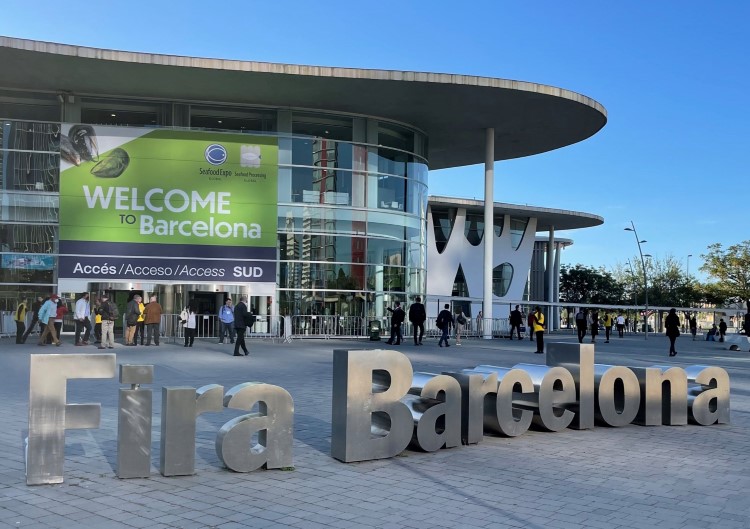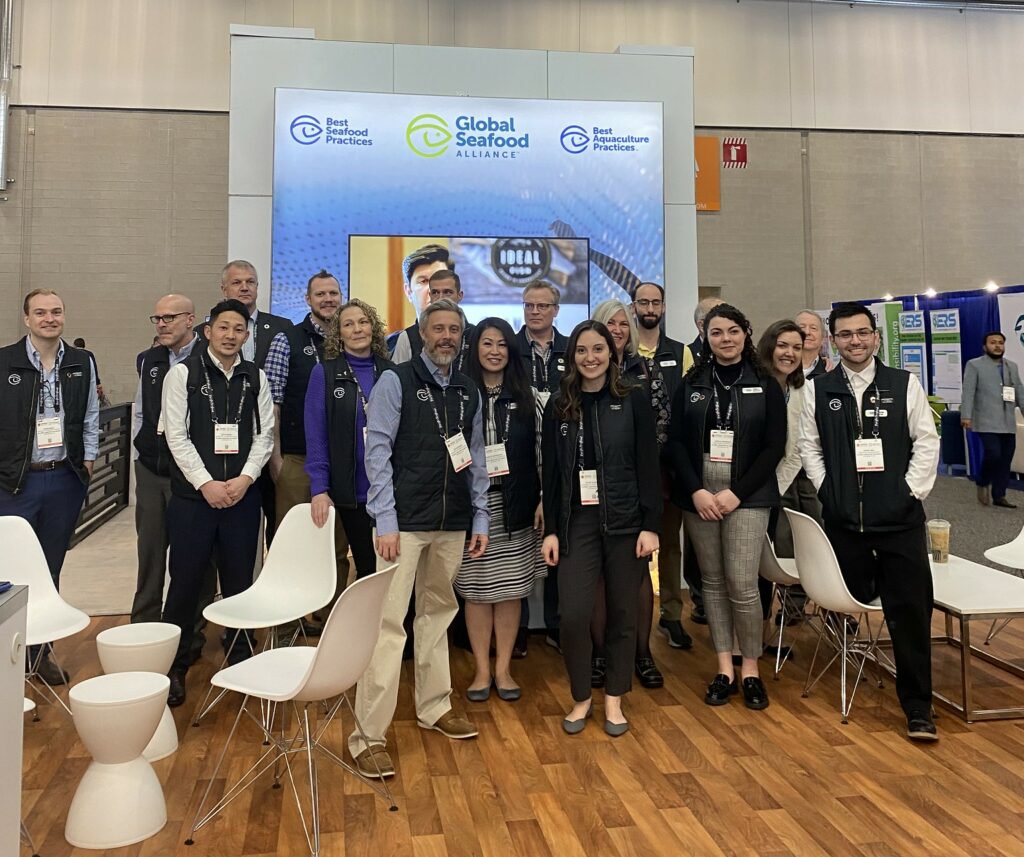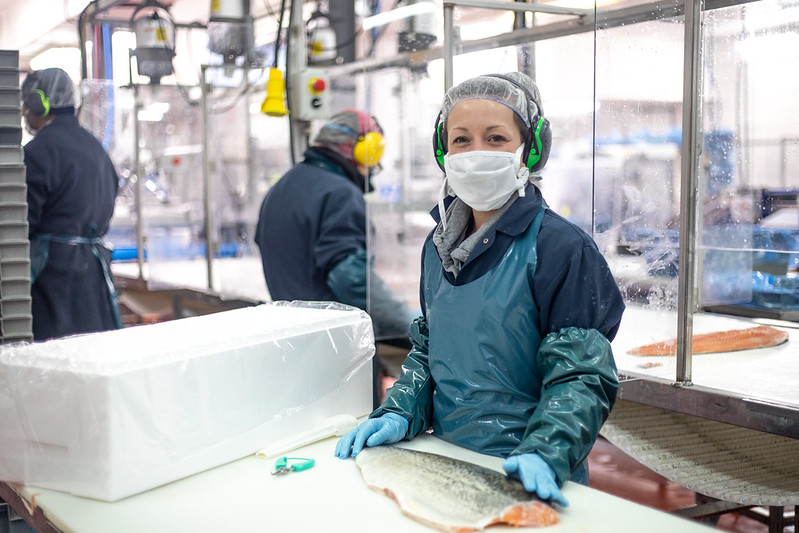GAA, BAP Make Splash at China Seafood & Fisheries Expo
The Global Aquaculture Alliance (GAA) held its first ever China Marketplace Forum at the 2017 China Seafood & Fisheries Expo in Qingdao on Nov. 1. The forum, which was attended by more than 100 people, highlighted GAA’s efforts to promote responsible aquaculture in China through its Best Aquaculture Practices (BAP) third-party certification program.
GAA CFO/COO Jeff Fort opened the forum by giving an overview of GAA, which is celebrating its 20th anniversary this year. He highlighted that the BAP program recently became the world’s first aquaculture certification program to be recognized by the Global Sustainable Seafood Initiative (GSSI). He also noted that the BAP program is recognized by the Global Food Safety Initiative (GFSI) and is pursuing recognition from the Global Social Compliance Program.
GAA Vice President Steven Hart, who leads GAA’s efforts in China, followed by addressing the importance of the Chinese marketplace and the rapid growth of e-commerce seafood sales in China. E-commerce companies are raising the bar in the marketplace for the adoption of responsible sourcing policies in China. Yiguo, JD.com and Hema all presented at the forum, reinforcing their commitment to sourcing responsibly produced farmed seafood.
Yang Yiyi, vice president of Yiguo, a leading online food e-retailer in China, said Yiguo is committed to selling 2 million units of farmed seafood products originating from BAP-certified facilities, with a minimum value of 15 million RMB in 2018. Yan Qing, aquatic products business manager of JD.com, one of the two largest B2C online retailers in China, reiterated JD.com’s commitment to BAP, while Xian Ma, fresh procurement director of Hema, an Alibaba-owned supermarket chain in China, showcased how its customers use its business model to eat responsibly produced seafood through an individualized shopping experience that merges online and offline shopping and foodservice.
Also presenting at the forum was Jeff Sedacca, president of Sunnyvale Seafood, a division of Zhanjiang Guolian Aquatic Products Co. Ltd., and a GAA board member, He talked about what he sees as the three major challenges facing the U.S. seafood market: First is the disruption of the U.S. market as a result of China’s rapidly growing market. Second is the need for increased supply-chain transparency, creating a need for third-party certification programs. And third is and the trend toward vertical integration through company acquisitions, creating complicated multi-party complexes.
Also making headlines this week were two firsts for the BAP program: the first BAP-certified oyster and scallops facility, and the first BAP-certified crab farm. During the forum, Fort presented Alpha Group’s hairy crab farm, Zhejiang Aoling Aquatic Seeding Technology Co. Ltd., with its BAP certificate. It’s the world’s first crab farm of any kind to earn BAP certification. Zheng Haidi, the company’s general manager, accepted the BAP certificate during a brief ceremony. Later that day, Jeff Fort presented a BAP certificate to Liu Haijun, president of Rushan Hope Well Foods Co. Ltd. the company’s processing plant in China recently attained BAP certification, the first facility of any kind that handles oysters or scallops to earn BAP certification.
Finally, in a joint presentation, Cui He, president of the China Aquatic Products Processing and Marketing Alliance (CAPPMA) joined Hart to announce the creation of a China future leaders program. The objective of the program is to train young Chinese seafood professionals and prepare them for future executive leadership roles within their companies. This joint effort will be the first of its kind to develop young seafood professionals in China, said Hart.
The China Fisheries & Seafood Expo is Asia’s largest seafood trade show. This year, the expo was the biggest yet, featuring 1,4o0 exhibiting companies from 46 countries as well as 28,000 visitors. GAA exhibited in stand E1-1101.
About BAP
A division of the Global Aquaculture Alliance, Best Aquaculture Practices is an international certification program based on achievable, science-based and continuously improved performance standards for the entire aquaculture supply chain — farms, hatcheries, processing plants and feed mills — that assure healthful foods produced through environmentally and socially responsible means. BAP certification is based on independent audits that evaluate compliance with the BAP standards developed by the Global Aquaculture Alliance.




